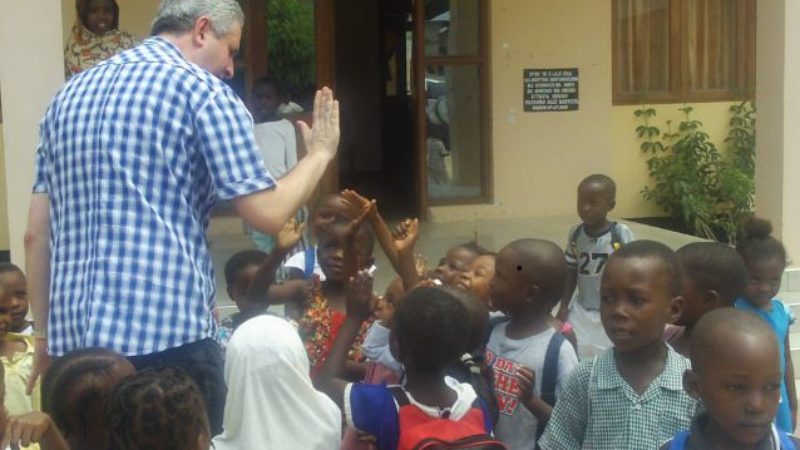
A child dies from Malaria every minute.
Please just take a second or two to let that sink in.
One child every minute.
From a preventable and treatable disease.
Today is World Malaria Day, a day when the international community should celebrate the progress made tackling malaria but also look ahead to the challenges we still face.
The World Health Organisation estimates there were 655,000 malaria deaths in 2010. Of these 91% were in Africa and 86% were of children under 5 years of age. There is no doubt that this is 655,000 too many.
Malaria has been in the scopes of international community for a long time. The Millennium Development Goals established in 2000 took a significant step towards eradicating the disease, pledging to halt and begin to reverse the incidence of malaria by 2015. And in 2008, Labour Prime Minister Gordon Brown, put our Government’s support behind the Global Malaria Action Plan which aims to end malaria deaths by 2015. This work has delivered great results, cutting global deaths from malaria by more than 26% and saving the lives of over 1.1m children in Africa alone. This year we celebrate a drop in the number of deaths with 126,000 fewer people succumbing to the disease in 2010 compared with the previous year according to recently released statistics from the World Health Organisation.
There are however still significant challenges. The Global Fund to fight HIV/AIDS, tuberculosis, and malaria accounts for over half of international aid to combat malaria and has distributed over 230 million malaria drug treatments over the past decade. The Global Fund is a vital part of the international community’s response to malaria, HIV/AIDS and TB. However over the last year the Fund has faced an unprecedented funding crisis.
In 2011 the Fund identified and publicised cases of corruption it had found in some of its programmes – amounting to 0.3% of the total Fund programme budget. Since then the Fund, currently chaired by a senior British civil servant, has instituted significant reforms which have been widely welcomed by the international community and the Secretary of State. Leading donors including Japan, Germany and the Gates Foundation have announced additional funding for the Fund this year and this in turn has encouraged other donors who plan to announce more money at the upcoming G20 meeting in June. But at a special session of the International Development Select Committee last week our own Government indicated it wasn’t sure it would join them.
Let me be clear, the Global Fund is not the only institution in the fight against malaria, AIDS or TB. There are many other NGOs, donor countries and international organisations doing great work alongside the governments of the countries suffering most from these diseases. The Global Fund however, represents the single biggest actor by far in the fight against malaria and as such, it is vital that the international community come together to pledge and deliver more money now before the progress of the previous decade is undone. Upon taking his position as Secretary of State for International Development, Andrew Mitchell was clear about his approach stating “We will not balance the books on the backs of the world’s poorest people.” His own review of the Global Fund last year found it to be “very good” and last week he commended the Fund on its work and recent reforms. Now he needs to bring the UK to the negotiating table and help encourage other donors to fund the Fund so that this time next year we will once again be celebrating success in tackling AIDS, TB and, today in particular, Malaria.
Ivan Lewis MP is the Shadow Secretary of State for International Development




More from LabourList
‘Labour promised to make work pay. Now it must deliver for young people’
‘Council Tax shouldn’t punish those who have the least or those we owe the most’
Two-thirds of Labour members say government has made too many policy U-turns, poll reveals